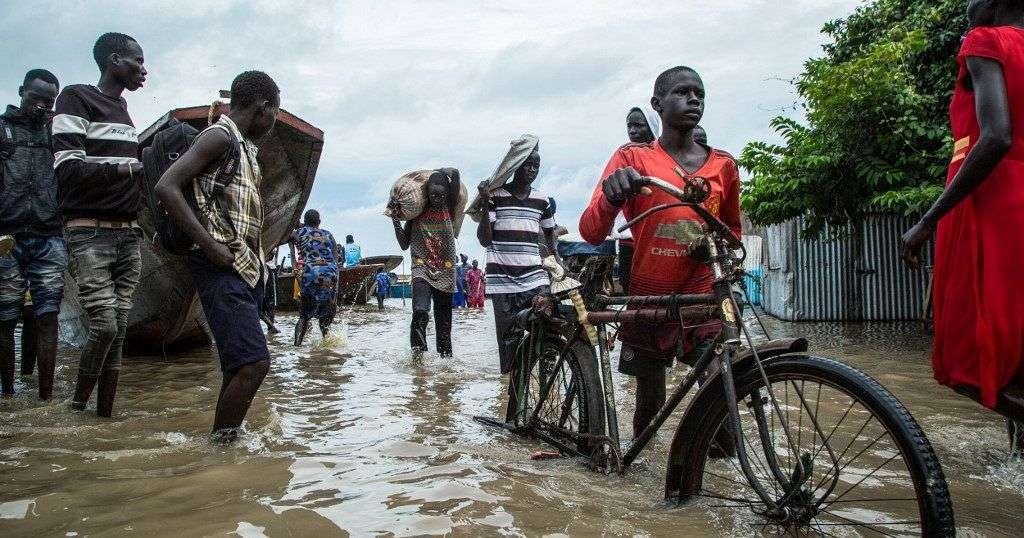Juba, South Sudan – (African Boulevard News) – Extreme weather conditions caused by the climate crisis have sparked fears of a major food shortage in South Sudan. This looming crisis has left many vulnerable communities on the brink of hunger, with access to food becoming increasingly scarce.
According to a recent report by the United Nations, the ongoing drought and flooding in South Sudan have led to unprecedented levels of food insecurity. The extreme weather has disrupted farming activities, leaving many farmers unable to grow crops and sustain their livelihoods. Even those who were previously able to feed themselves are now struggling to find enough food to survive.
“The situation in South Sudan is dire. The climate crisis has hit us hard, causing widespread hunger and suffering,” said John Deng, a farmer from the region. “We used to have enough food to feed our families and even sell the excess. But now, it’s a struggle just to find a meal for the day.”
The effects of the climate crisis are not limited to the agricultural sector. The extreme weather conditions have also destroyed critical infrastructure, such as roads and bridges, making it difficult to transport food supplies to remote areas. This has further exacerbated the food shortage and increased the prices of available food, making it unaffordable for many families.
“The lack of access to food is a ticking time bomb,” warned Dr. Mary Achieng, an expert on food security. “If immediate action is not taken, we could be facing a humanitarian catastrophe in South Sudan.”
International organizations and humanitarian agencies are working tirelessly to address the crisis and provide assistance to affected communities. However, the scale of the problem is immense and requires a coordinated effort from all stakeholders.
“The situation in South Sudan highlights the urgent need for climate action and investment in sustainable agricultural practices,” stated Dr. James Smith, a climate scientist. “We must work towards building resilience and adapting to the changing climate patterns, while also addressing the root causes of the crisis.”
The South Sudanese government is also taking steps to mitigate the impact of the extreme weather conditions. They have implemented measures to support farmers, such as providing seeds and tools, and promoting climate-smart agriculture techniques.
However, the challenges ahead are immense, and the international community must step up their efforts to support South Sudan in overcoming this crisis. Immediate funding and resources are needed to ensure that vulnerable communities have access to food and can rebuild their lives.
As South Sudan grapples with the devastating consequences of extreme weather conditions, it is evident that urgent action is required to prevent a humanitarian disaster. The climate crisis demands a global response, with a focus on sustainable solutions and support for those most affected. Failure to act now could have dire consequences for food security in South Sudan and beyond.

